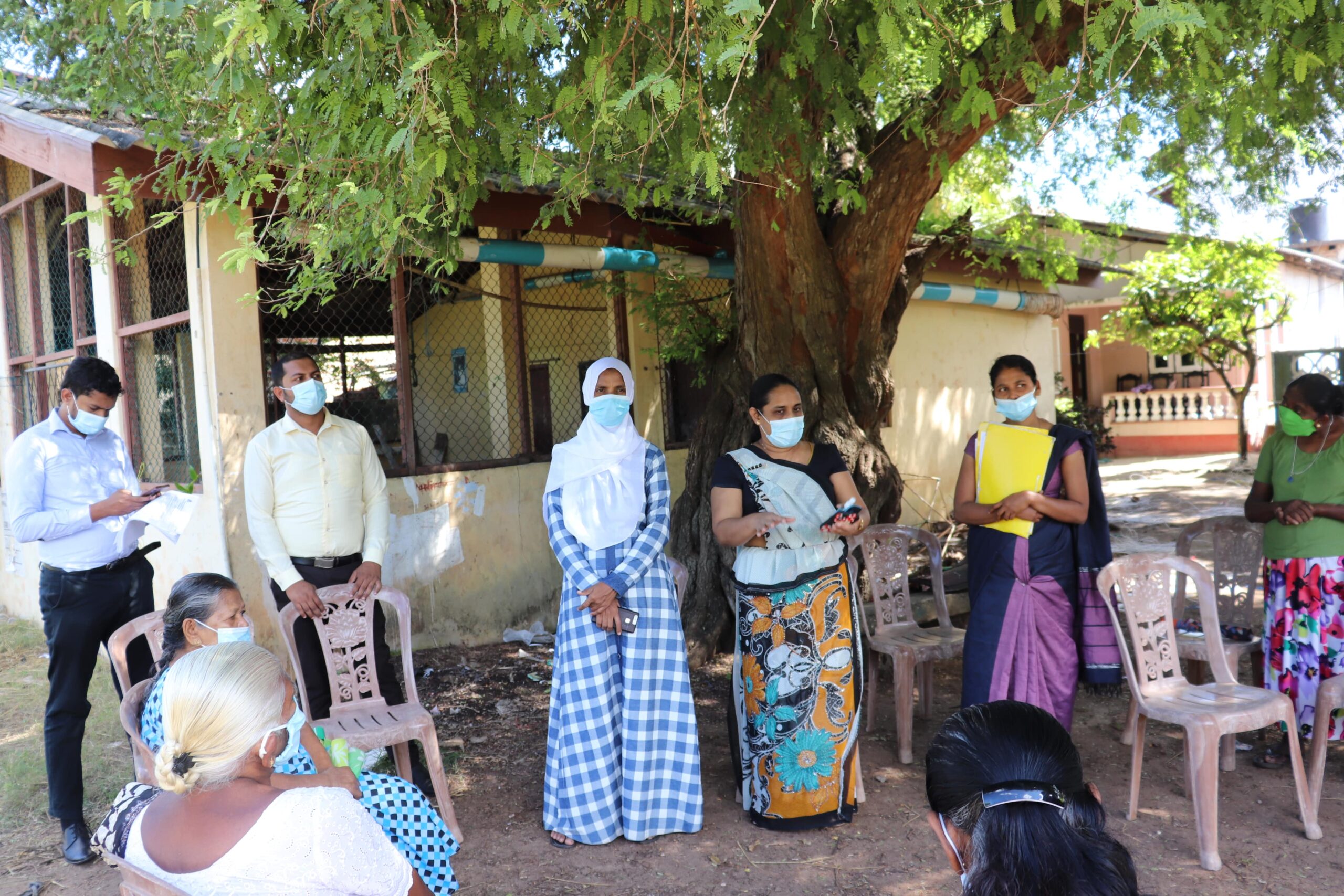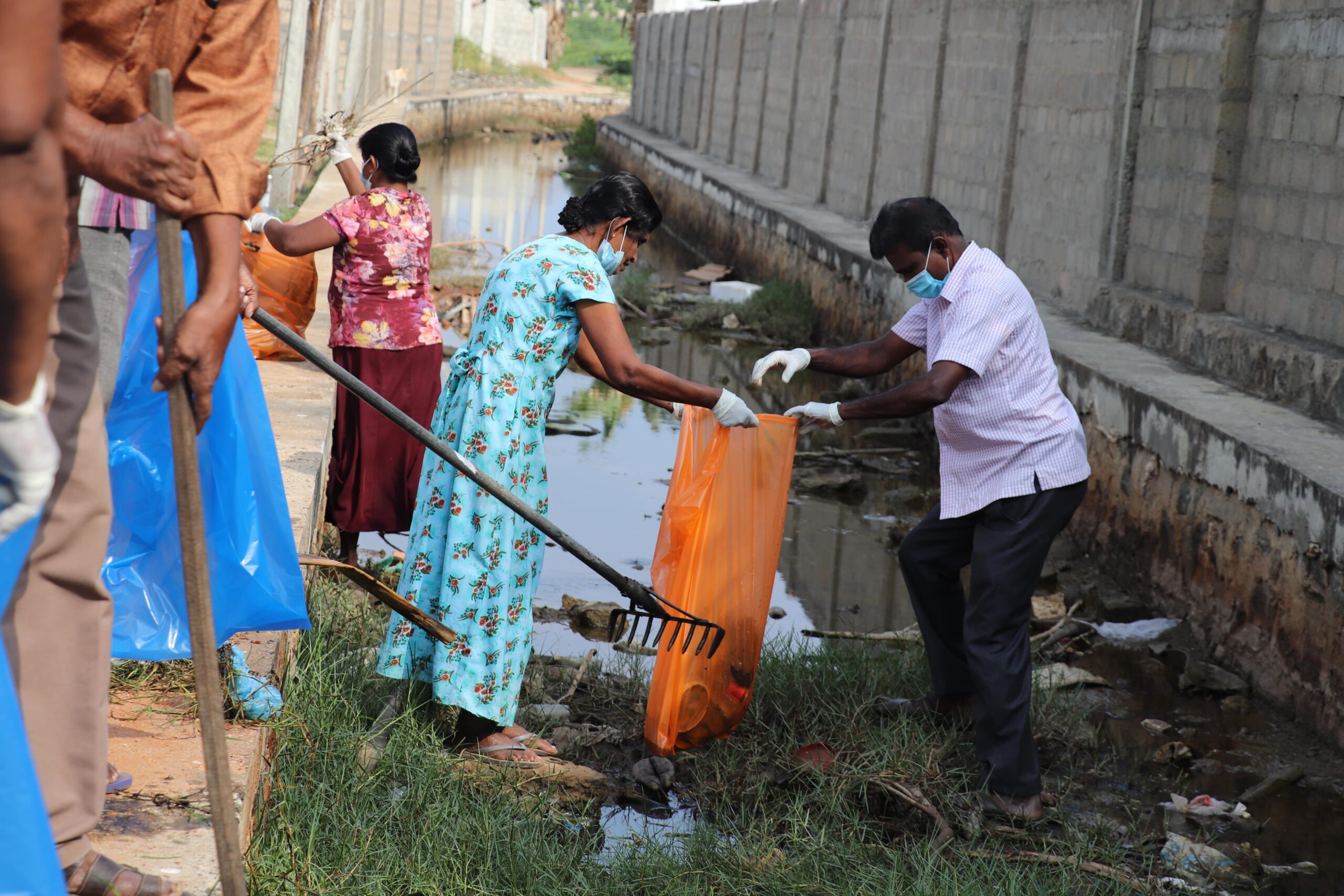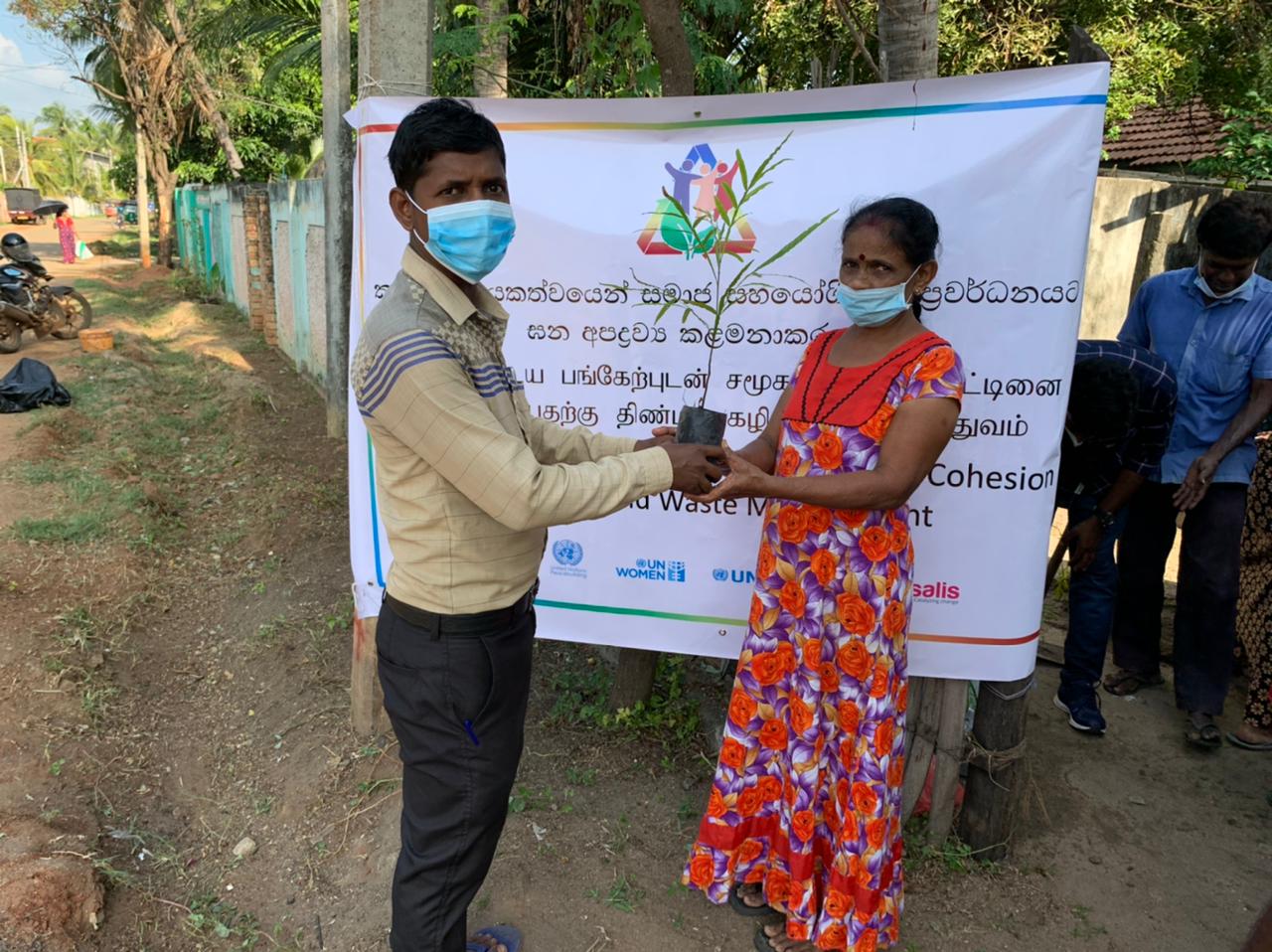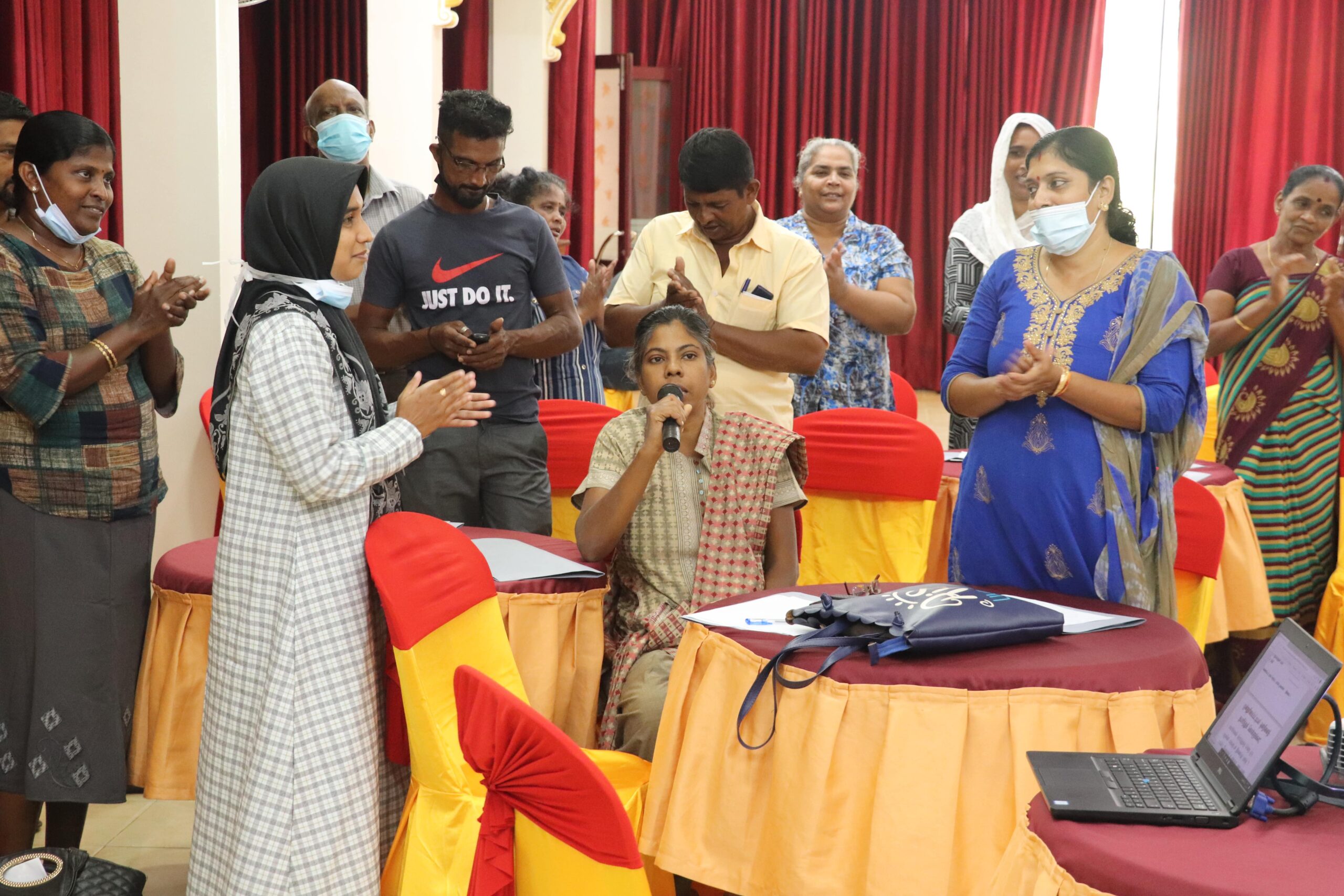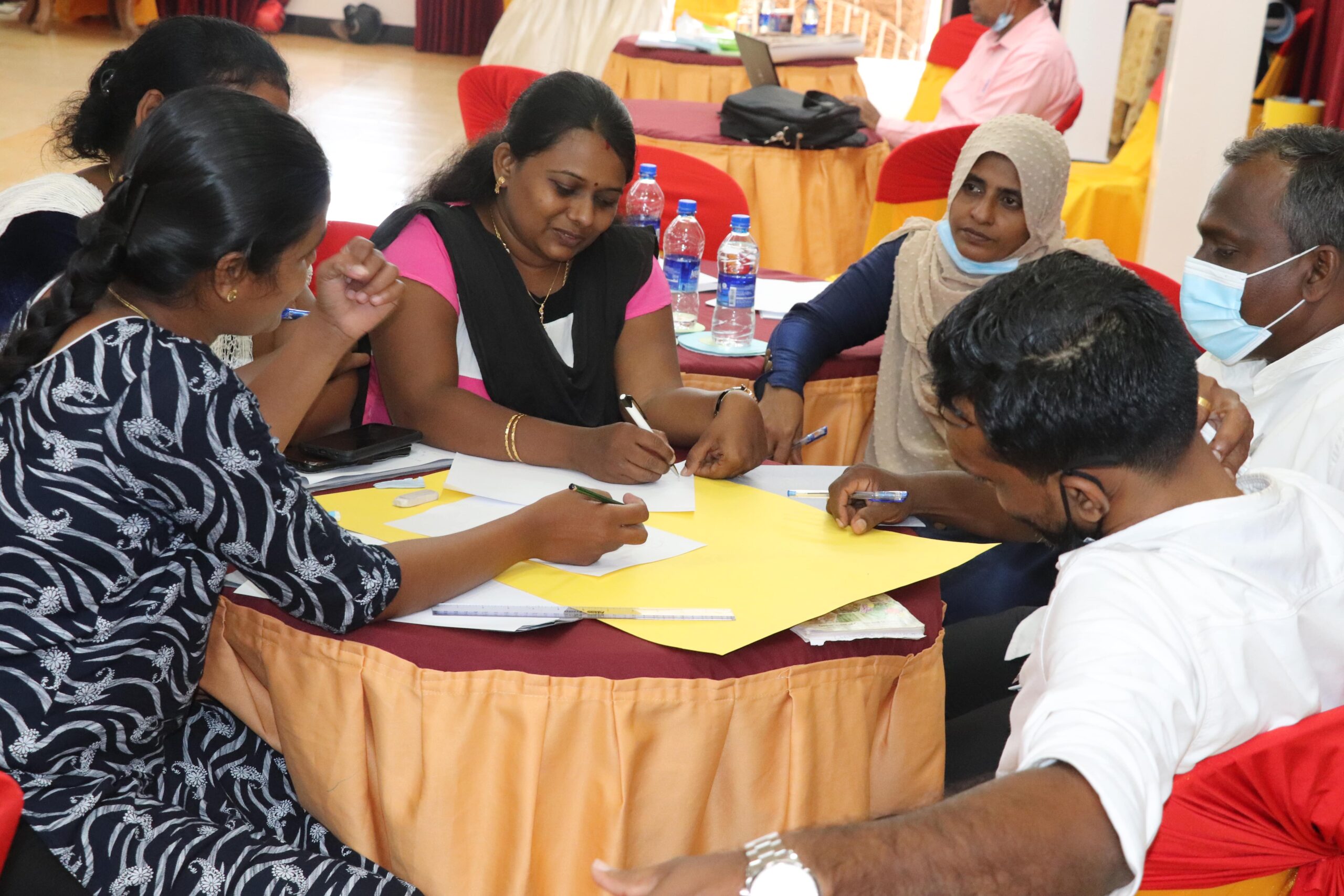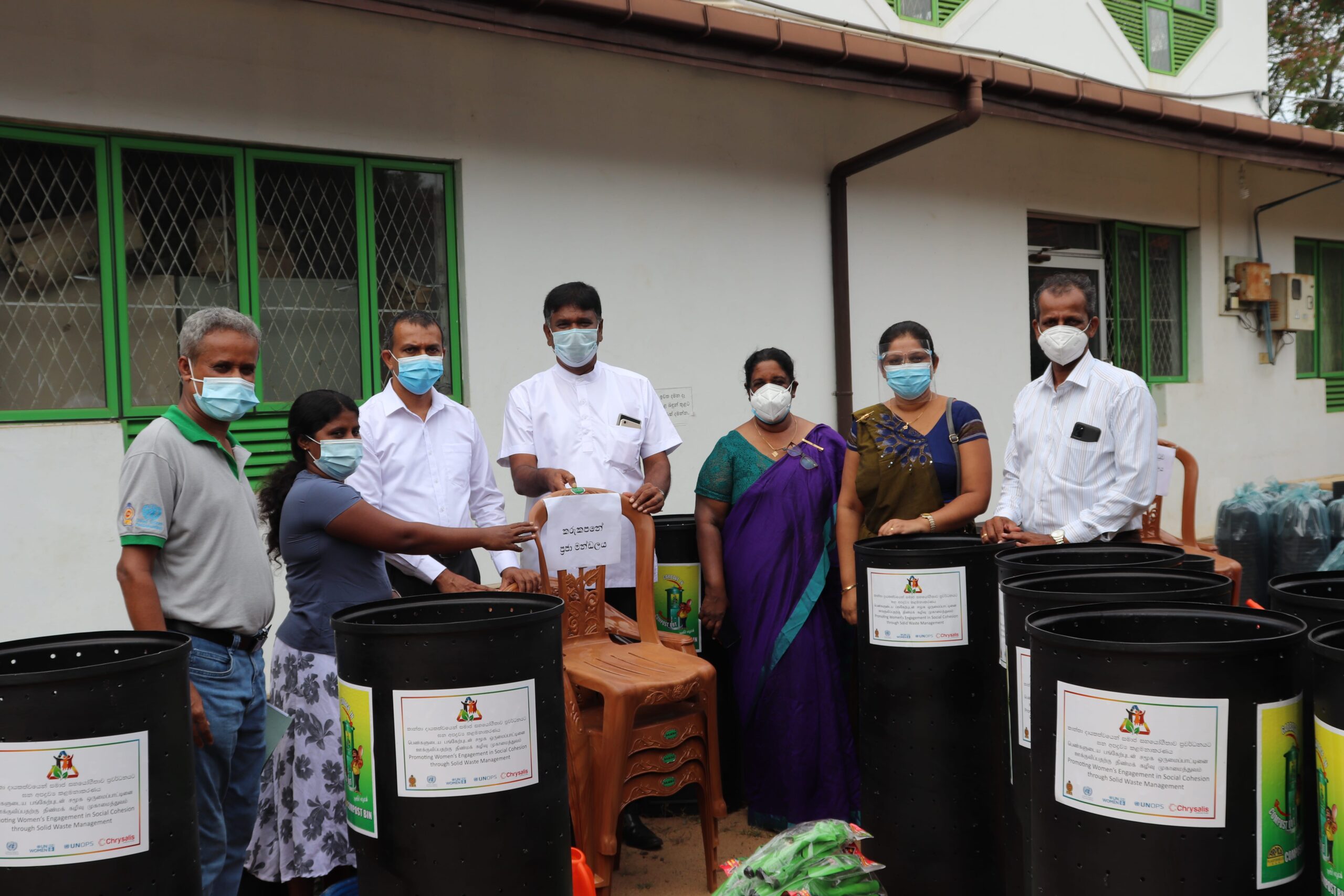The site is under construction!
Promoting Women’s Engagement in Social Cohesion through Solid Waste Management
An innovative, integrated approach to peacebuilding, tackling ethno-religious tensions by bringing communities together to provide a sustainable solution for a shared environmental issue, with women and youth at the forefront for conflict prevention.
The project is funded by the UN Peacebuilding Fund (UNPBF) through UN Women Regional Office for Asia and the Pacific and UN Women Sri Lanka Programme Presence. Chrysalis will implement the project together with UNOPS – Sri Lanka.
The project will work closely with the Central Environmental Authority (CEA), Ministry of Women and Child Affairs and Social Security, Ministry of Provincial Council and local Government, North Western Provincial Council, Provincial Environmental Authorities, Local Government Authorities, Women Caucuses of Local Councilors, Inter-religious Groups and Civil Society Organizations.
The project has been featured in the website of the DEPARTMENT OF LOCAL GOVERNMENT (NWP)
The project will be implemented in 5 local government areas (4 in Puttalam and 1 in Mannar district). Among many activities planned, primarily the project will target:
- 45 Praja Mandalas formed or revamped
- Implement 5 solid waste management(SWM) solutions at local government level
- Provide 45 action grants for Praja Mandala level SWM and income generation initiatives
- Support 4 women led SWM solutions at local government level
- Support 1250 household level greening and home gardening initiatives
- Form and strengthen 4 youth task forces
- Aware and educate 4500 households on SWM and related conflict prevention
- Building linkages between Private sector and Praja Mandala
- Establish and strengthen Women Caucuses to address SWM and Conflict prevention issues
|
.






